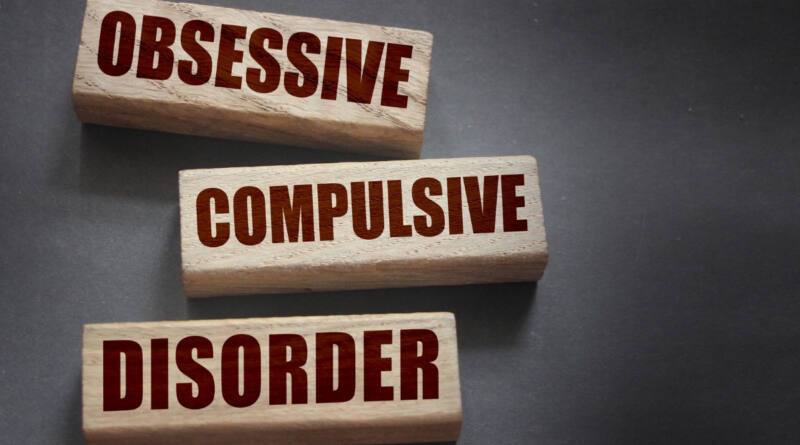The Fundamentals Of OCD That You Need To Know
Obsessive-compulsive disorder (OCD) is a persistent mental condition where individuals face recurring, uncontrollable, undesired thoughts, ideas, or sensations (obsessions) and/or behaviours (compulsions) that compel them to repeat actions.
Symptoms can vary from one patient to another. Some individuals only exhibit symptoms of obsessions or compulsions. Some individuals may encounter symptoms of both obsessions and compulsions.
Overall, OCD causes significant physical and emotional distress. This disrupts the day-to-day routine. One might struggle to concentrate or focus at college, work, or other places.
Individuals with OCD often dedicate numerous hours each day to satisfying their obsessions, resulting in limited time for their loved ones. Typically, their family and social lives are lacking. It has the potential to damage relationships as well.
We’ve all recognised certain fixations and routines in our everyday routines, such as double-checking the gas or locks before heading out and frequently looking at our phones for new messages or emails. Many individuals strive for perfection in their work, while some prioritise cleanliness and hygiene in all areas. However, it does not imply that they have OCD. The symptoms of OCD are extreme, well above the usual.
Guidelines for Diagnosing OCD:
No specific diagnostic test exists for OCD. Diagnosing a condition requires a thorough evaluation of all symptoms.
Many clinicians adhere to the guidelines outlined in the Diagnostic and Statistical Manual of Mental Disorders, Fifth Edition, Text Revision (DSM-5-TR). This manual provides valuable points for health professionals to effectively diagnose and categorise psychiatric and mental disorders. Most psychiatrists widely practice the definitions and criteria provided in this manual, with a few exceptions.
As per DSM-5, the primary criteria for OCD are as follows:
- Obsessions, compulsions, or both are evident.
- The obsessions or compulsions are time-consuming, for example, taking more than 1 hour per day, or causing clinically significant distress or impairment in social, occupational, or other important areas of functioning.
- The physical side effects of substances like drugs or medications or other medical conditions like head injuries do not cause obsessive-compulsive symptoms.
The disturbance is not attributed to symptoms of another mental disorder, such as excessive worries in generalised anxiety disorder, preoccupation with appearance in body dysmorphic disorder, or difficulty discarding possessions in hoarding disorder.
Obsessions:
Obsessions are persistently recurring, involuntary, unwelcome thoughts, urges, or mental images that trigger distressing emotions such as anxiety, fear, or disgust. Here are the most frequently observed symptoms:
- Concerned about germs, disease, and dirt
- Fear of contamination involving contact with perceived contaminated substances or things like body fluids (e.g., urine, faeces), germs or diseases (e.g., herpes, HIV, COVID-19), environmental contaminants (e.g., asbestos, radiation), household chemicals (e.g., cleaners, solvents, battery acid)
- Disturbing sexual thoughts or mental images.
- Overly concerned with religious and moral matters: fear of displeasing higher powers (blasphemy), curses, sin, etc.
- Concern about losing control and behaving inappropriately, aggressively, or violently, resulting in harm to oneself or others.
- There is concern about the well-being of loved ones and the possibility of something unfortunate happening to them.
- There is a strong inclination towards achieving perfect symmetry in everything.
- There is a significant worry about misplacing items that could be useful in the future, along with a strong sentimental connection to possessions.
- Showing an intense preoccupation with having a physical illness or disease (excluding concerns related to contamination, such as cancer)
- Concerns about being held accountable for a catastrophic event (such as fire, burglary, or a car accident) and overwhelming anxiety regarding one’s sexual orientation
- Overly preoccupied with one’s gender identity
Compulsions
Compulsions involve repetitive, unwanted, and distressing behaviours that trigger an uncontrollable urge in an individual to carry out specific actions in response to an obsession.
To alleviate their obsessive thoughts and anxiety, individuals with OCD feel driven to perform certain actions repeatedly. Despite recognising that this is not a long-term fix, they persist in carrying out those unnecessary tasks. They strongly believe that not doing these tasks will escalate their anxiety. These repetitive actions offer only short-term comfort. Before you know it, those persistent thoughts resurface, triggering the compulsive actions once more. This cycle perpetuates itself, resulting in ongoing anxiety.
Compulsions manifestations:
- Excessive hand washing, bathing, teeth brushing, or toileting. Repeated cleaning of household items like floors, tiles, and dishes
- Ensuring meticulous attention to detail, maintaining symmetry, and consistently organising things in a specific manner
- Regularly examining items like locks, doors, electrical appliance switches, and more.
- Repetitively counting or frequently repeating specific phrases
- Seeking approval, understanding, and support.
- Keep tapping on something a specific number of times.
- Always keep in mind that you have not caused harm to anyone.
- Engaging in repetitive counting or reciting particular words or prayers while multitasking
- Following a specific order when eating food
- Avoid shaking hands or touching frequently handled objects, such as doorknobs.
- Executing a task a set number of times, like flicking a light switch on and off seven times daily.
- Keep a close watch on the body for any signs of disease, and regularly inspect body parts for any irregularities.
- Engaging in repetitive body movements (such as tapping, touching, or blinking)
- Accumulating objects without personal or financial worth or purchasing duplicates.
- Consistently monitor your actions to ensure you have not harmed, mistreated, or caused injury to anyone.
OCD patients feel the need to repeat certain actions a specific number of times or until they feel things are right to alleviate their anxiety and distress from obsessive thoughts.
Individuals with OCD often steer clear of specific individuals, locations, or situations that trigger anxiety and discomfort, leading to symptoms of obsession and compulsion. These avoidances negatively impact their social and personal lives. An impairment in normal functioning can result in compromised physical and mental health.
Factors that increase the risk of OCD
- Family History/Genetic: The exact cause of OCD remains unknown, but a family history of the disorder is believed to play a role. Having the family history of a close family member with this disorder increases the likelihood of developing the condition.
- Mental trauma involves a past life-threatening situation or a stressful event, like the sudden loss of a family member. Childhood abuse is a prime example.
- Stress: Stressful personal and professional relationships can heighten the risk of developing OCDS or exacerbate current symptoms.
- Personality: Certain personality traits have been associated with a higher likelihood of developing OCDS. Take neuroticism, over-perfectionism, and indecision as examples.
Other mental disorders often accompany OCDs, including anxiety disorders, depression, drug abuse, tic disorders, and more. - Following a traumatic brain injury, OCD may develop or its symptoms may worsen.
- Paediatric autoimmune neuropsychiatric disorders associated with streptococcal infection (PANDAS). For certain children, OCD may arise following this infection.
Various treatments and therapies are available:
Dealing with obsessive-compulsive disorder (OCD) is feasible, contingent on the extent to which OCD has affected an individual’s life.
Treating OCD typically involves medication, psychotherapy, or a combination of both. Most patients with OCD show positive responses to treatment, but there are cases where some patients do not. Here are some of the most common OCD treatments and therapies:
- Prescribed medications are mainly antidepressants known as selective serotonin reuptake inhibitors (SSRIs). This medication enhances OCD symptoms by elevating serotonin levels in the brain, a neurotransmitter that plays a crucial role in mood, appetite, digestion, sleep, and various bodily functions. Experts suggest that serotonin in the brain plays a crucial role in alleviating symptoms of anxiety and depression, maintaining emotional balance, and promoting a sense of well-being.
- Cognitive-behavioural therapy (CBT). According to experts, this therapy is considered the most effective treatment for OCD. CBT encompasses a variety of therapy methods that are widely regarded as effective for addressing OCD. Alternative therapies, such as habit-reversal training, can be just as effective as medication for many people. Studies have shown that behavioural therapies are successful in controlling the symptoms of OCD.
- Exposure and Response Prevention (ERP). This falls under the category of cognitive-behavioural therapy (CBT). During therapy sessions, patients are gradually exposed to anxiety-provoking situations or concerns that are the root cause of their obsessions and compulsions. The objective of ERP is to educate patients on how to effectively handle the distress and suffering triggered by their obsessions without engaging in compulsive behaviours.
Over time, the patient will adapt their responses to triggering situations, resulting in fewer compulsions and less severe obsessions. - Mindfulness-based cognitive therapy (MBCT) involves a blend of cognitive behavioural therapy (CBT), meditation practices, and mindfulness techniques, making it a modified form of psychotherapy. This therapy is truly helpful in managing the suffering and distress triggered by obsessive thoughts in multiple ways. Being fully present involves directing your attention to the current moment and observing your internal and external experiences without criticising or becoming consumed by them.
Additional Measures:
Therapists typically suggest a combination of ERP and medication as the primary treatment for OCD. Obsessive-Compulsive Disorder (OCD) is considered a persistent mental health condition. Research indicates that approximately 60 to 65% of individuals with OCD experience positive outcomes from traditional treatment methods involving a mix of therapy and medication.
There are additional treatment options for OCD patients who do not respond to standard treatments. Nevertheless, these are not as frequently utilised, and numerous of these methods are still being investigated. Several studies suggest that they may be quite beneficial in alleviating the symptoms of OCD patients.
Here are a few options to consider:
- Electroconvulsive therapy (ECT),
- Deep brain stimulation (DBS)
- Repetitive transcranial magnetic stimulation (rTMS)
- There are ongoing trials for new OCD medications.
Self Care:
Self-care is crucial in addition to medical treatment. Ensure you get enough sleep and engage in regular exercise to lower stress and anxiety levels, which can in turn alleviate OCD symptoms.
- Emphasising the importance of a healthy and balanced diet;
- Suggesting relaxation techniques like meditation, yoga, and massage to help reduce stress and anxiety
- Being with family and friends can contribute to your overall mental well-being.
- Joining a support group, whether in-person or online, specifically designed for individuals with OCD, can be very beneficial.
Patients can acquire new strategies with professional guidance to effectively manage their symptoms and minimise the impact of the illness on their lives.
While there are several effective medical and psychological treatments available for obsessive-compulsive disorder (OCD), they may not be effective for all individuals. There is a lot of ongoing research to find new and more effective treatment modalities for OCD or to enhance the efficiency of current treatment methods.
By ensuring the patient receives appropriate treatment, practices self-care, and receives support from loved ones, their quality of life and social functioning can improve.
Disclaimer: The WFY website aims to share experiences, opinions, and information on various topics. However, it is important to note that the author of this blog does not possess any professional authority or expertise, especially in subjects related to health, medical advice, or legal matters. The information provided on this website is based on personal experiences, research, and general knowledge. While we strive to provide accurate and up-to-date information, we cannot guarantee the completeness, reliability, or accuracy of the content. Therefore, any action you take based on the information found on this blog is at your own risk. The contents of this blog should not be considered a substitute for professional advice or consultation from experts in the respective fields. If you require specific advice or assistance, we strongly recommend consulting with a qualified professional. The WFY (website) and its author will not be liable for any errors, omissions, or any losses, injuries, or damages arising from the use or reliance on the information presented on this blog. It is your responsibility to verify any information obtained from this blog and to use it at your own discretion. Please note that the opinions expressed in the articles and comments on this blog are those of the respective authors and do not necessarily reflect the views of the website owner or any associated individuals. By using this website, you acknowledge and agree to the above disclaimer. If you do not agree with this disclaimer, please refrain from using this website.





Howdy, I do believe your blog could be having browser compatibility problems. When I take a look at your website in Safari, it looks fine however, when opening in Internet Explorer, it’s got some overlapping issues. I just wanted to give you a quick heads up! Besides that, fantastic blog!
A further issue is that video games can be serious in nature with the major focus on studying rather than fun. Although, there is an entertainment part to keep the kids engaged, every game will likely be designed to develop a specific experience or programs, such as mathematics or research. Thanks for your posting.
A fascinating discussion is definitely worth comment. There’s no doubt that that you should publish more on this topic, it might not be a taboo subject but typically folks don’t speak about such topics. To the next! Kind regards!!
I’m still learning from you, while I’m trying to achieve my goals. I absolutely liked reading everything that is written on your blog.Keep the posts coming. I liked it!
Good day! I just would like to offer you a huge thumbs up for the excellent information you have got right here on this post. I’ll be coming back to your web site for more soon.